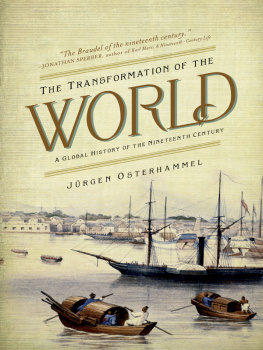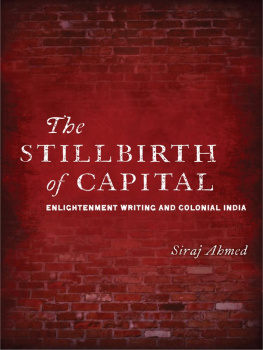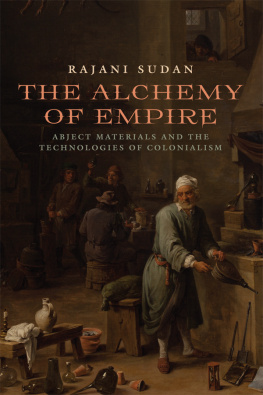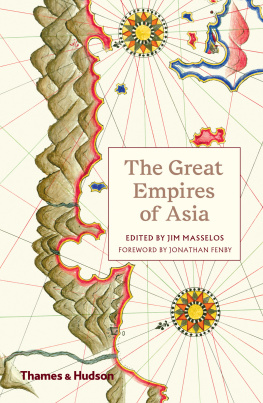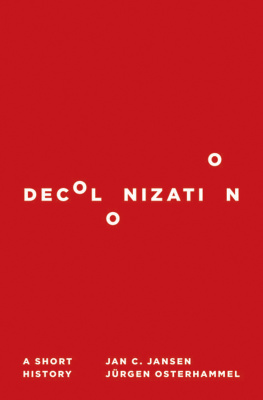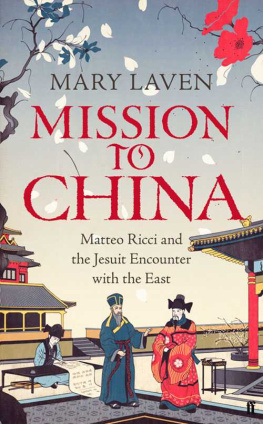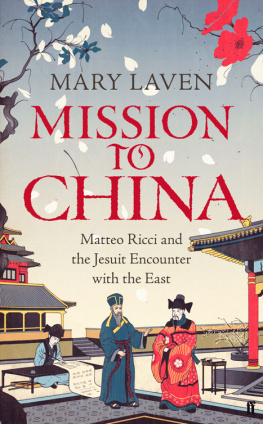UNFABLING
THE EAST
The Enlightenments Encounter with Asia
Jrgen Osterhammel
Translated by Robert Savage
PRINCETON UNIVERSITY PRESS
Princeton and Oxford
Die Entzauberung Asiens: Europa und die asiatischen Reiche im 18. Jahrhundert by Jrgen Osterhammel Verlag C. H. Beck oHG, Mnchen 2013
Copyright 2018 by Princeton University Press
Requests for permission to reproduce material from this work should be sent to Permissions, Princeton University Press
Published by Princeton University Press, 41 William Street, Princeton, New Jersey 08540
In the United Kingdom: Princeton University Press, 6 Oxford Street, Woodstock, Oxfordshire OX20 1TR
press.princeton.edu
Jacket image: Portuguese in Burma , 1730, copper engraving by Jan Caspar Philipps (16901775) akg-images.
Jacket design by Faceout Studio, Charles Brock.
All Rights Reserved
Library of Congress Cataloging-in-Publication Data
Names: Osterhammel, Jrgen, author.
Title: Unfabling the East : the Enlightenments encounter with Asia / Jrgen Osterhammel ; translated by Robert Savage.
Other titles: Die Entzauberung Asiens. English
Description: Princeton, NJ : Princeton University Press, [2018] | Includes bibliographical references and index.
Identifiers: LCCN 2017039097 | ISBN 9780691172729 (hardcover : alk. paper)
Subjects: LCSH: AsiaForeign public opinion, European. | AsiaCivilizationPublic opinion. | Public opinionEurope. | AsiaDescription and travel. | AsiaRelationsEurope. | EuropeRelationsAsia.
Classification: LCC DS33.4.E85 O7513 2018 | DDC 303.3/8095dc23
LC record available at https://lccn.loc.gov/2017039097
British Library Cataloging-in-Publication Data is available
The translation of this work was funded by Geisteswissenschaften InternationalTranslation Funding for Humanities and Social Sciences from Germany, a joint initiative of the Fritz Thyssen Foundation, the German Federal Foreign Office, the collecting society VG WORT, and the Brsenverein des Deutschen Buchhandels (German Publishers & Booksellers Association).
This book has been composed in Minion Pro
Printed on acid-free paper.
Printed in the United States of America
10 9 8 7 6 5 4 3 2 1
Contents
Preface
The long eighteenth century, lasting from around 1680 to the 1820s, was a period of intensive European engagement with Asia. This engagement was partly colonialin South Asia, on Java and the Philippines, in the Russian Empire from the Black Sea to the vast expanses of Siberia. Other regions of the continent were barely touched by European imperial ambitions: the Ottoman Empire, Persia, Afghanistan, China, Japan, and the greater part of Southeast Asia. Whether colonized or not, a steady stream of European adventurers, scholars, explorers, diplomats, soldiers, traders, and priests crisscrossed the continent, reporting back on what they saw to an interested public.
Their writings, often translated into several languages and disseminated across the continent and also to the Americas, laid the foundation for some of the eras most important works of philosophy, social theory, and history. The big names and armchair travelers who never left Europe referred to Asia extensively, making it a touchstone for their wide-ranging theories. Asia may have been Europes Other, but it figured as a permanent intellectual challenge rather than as an entirely alien and incomprehensible world. Montesquieu, Voltaire, or Turgot in France; Adam Smith, Edmund Burke, or Thomas Robert Malthus in Great Britain; Gottfried Wilhelm Leibniz, Johann Gottfried Herder, or Georg Wilhelm Friedrich Hegel in Germany; last but not least the great historian Edward Gibbon in his self-imposed exile at Lausannethey all grappled with the broad variety of Asias societies and civilizations, with its past, present, and future. Together with philosophically-minded travelers on the groundEngelbert Kaempfer in Japan, John Chardin in Persia, the Jesuits in China, Carsten Niebuhr in Arabia, Sir Stamford Raffles in Java, and many othersthey formed a single and seamless class of physically and mentally mobile intellectuals, a classe curieuse .
I draw on this large body of travel literature and theoretical comment to challenge the conventional postcolonial wisdom that sees all attempts to understand the East, including those of an era before empire, as invariably imperialistic and contaminated by European fantasies of power. On the other hand, the book is no partisan and one-dimensional apology of an Enlightenment whose ambiguities and dialecticsee Theodor W. Adornos and Max Horkheimers famous book Dialectic of Enlightenment (1947)have been revealed by numerous earlier critics. The main argument of my book is that the Enlightenments discovery of Asia entailed a more open-minded, less patronizing approach to foreign cultures than suggested by those who see it as a mere incubation period of Orientalism. I also discuss how Enlightenment cosmopolitanism came to be replaced by the aggressive colonialism and sense of superiority so prevalent in the nineteenth century. The end result was a mental great divergence in Eurasia that has narrowed again only in our own time. Asia was left an object of scientific inquiry while it disappeared from public debates in the many fields where it had played such an enormous role before: political theory, economics, the philosophy of history, or emergent comparative social science. This development can be conceptualized as a passage from inclusive to exclusive Eurocentrism.
This book has an unusual history, and readers may want to know a little about it before they decide to spend time on the chapters that follow. It was first published in German in 1998 as Die Entzauberung Asiens: Europa und die asiatischen Reiche im 18. Jahrhundert ; a second edition of 2010 added a postscript commenting on more recent literature. How the English title Unfabling the East came about will be explained at the end of commitments, I wrote the bulk of the manuscript in 199697 while I had the privilege of spending ten months as a fellow at that pinnacle of the German academic system, the Wissenschaftskolleg (Institute for Advanced Studies) in Berlin. It is a pleasure to renew my thanks to that splendid institution, in particular to its rector at the time, Wolf Lepenies, and to the current rector, Barbara Stollberg-Rilinger. The Wissenschaftskolleg in 2001 also graced the book with its own Anna-Krger-Preis given to publications that bridge the gap between the world of experts and an educated lay public.
For those readers who are familiar with German academia I should add that the book is not one of the two academic theses that are still required in Germany of budding scholars in the humanities; it is no Habilitationsschrift . This proved to be a great advantage. While the book aims at meeting high academic standards it was never constrained by the formal conventions of a research monograph. At the same time, no publishers commission stood at the beginning of the project. I did not write with a specific market in mind and could safely ignore deadlines and even word counts. Thus, I enjoyed the freedom to realize my intentions to the fullest extent. This would have been impossible without the understanding and generosity of my German publishers, C. H. Beck at Munich, a distinguished family firm that has succeeded in carrying over a great tradition of publishing into modern times and provides its authors with an intellectual home.
These intentions also imply limitations that I imposed on myself. Though it should become obvious upon casual acquaintance with the book that it does not aim at encyclopedic completeness, readers may miss chapters on two classical topics: religion and language. These omissions are deliberate. The question of Western views of Asian languages demands a specialized knowledge that I would never have been able to acquire within reasonable time, while religion is such a vast and well-researched topic that there would have been little more to do than summarize the existing literature. Splendid new works such as Urs Apps The Birth of Orientalism (2010) will satisfy the curious. I also felt that I had nothing original to add to the extended debate about the emergence of racism in the eighteenth century.
Next page

